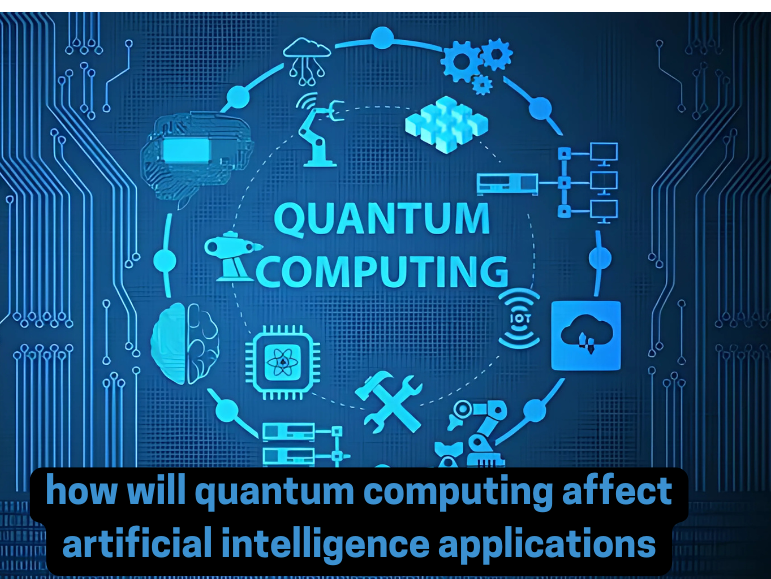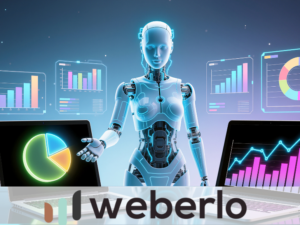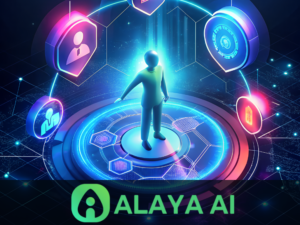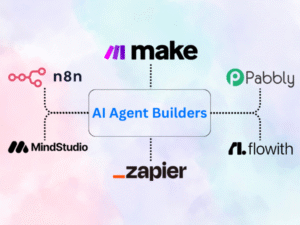As we move towards the future of the quantum world , it is evident that quantum computing is here to overthrow traditional views towards technology. Additionally, there are some predictions of artificial intelligence (AI) becoming even more exciting when integrated with quantum computing. This article investigates the intersection of quantum technologies and AI, providing insights into its current application, obstacles and prospective opportunities for advancement.
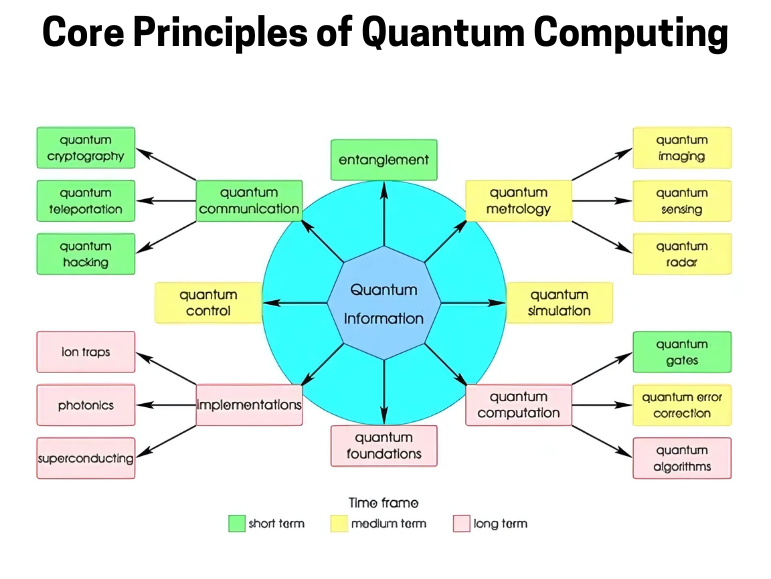
Core Principles of Quantum Computing
What Are Qubits (Quantum Bits) Utilizing in Computing and How Are They Different from Bits?
When it comes to binary computing and home networks, bits (0s and 1s) are used in transferring data, whilst quantum computers employ qubits, which can remain in the states of 0, 1, or both (simultaneously existing in multiple states is referred to as superposition). This allows for multiple quantum systems to be able to receive and transfer large amounts of information sequentially.
Principles of Quantum Mechanics Which Apply in Computing Processes
Superposition: Key for increasing computational strength as this allows qubits to simultaneously represent many states.
Entanglement: A phenomenon which makes available some qubits inter-related effects so that if you change one qubit, it affects other qubits regardless of their distances from one another.
Quantum Interference: Used to enhance the correct answers while maintaining the least number of mistakes when carrying out computations.
Technical Obstacles and Restrictions of Quantum Computing
Because of its significance, the technology is rapidly growing, however quantum computing has considerable major obstacles:
Sensitivity: Qubits are relatively sensitive and tend to undergo a high degree of error due to environmental disturbances.
High Costs: The establishment and maintenance of quantum computers require a significant amount of investment.
Scalability Issues: Extending quantum systems for wider use is still a work in progress.
Impact on Artificial Intelligence
Quantum computing can revolutionize AI by eliminating two of its most significant hurdles: speed and complexity.
The Efficiency of Quantum Computing in the Processing of Large Quantities of Data
Training AI models usually involves training them with enormous data. Quantum computers can perform these tasks efficiently since the time to train AI models is significantly reduced.
Language via Quantum Computing and NLP
Quantum computer tools would lead to improvement in NLP tasks such as more accurate and quicker language translation and analysis of sentiments and conversational AI.
Quantum Supremacy and the Ability to Solve Complex Problems
More complex tasks including those that require AI pattern recognition and drug discovery that involve protein folding structural analysis can be accomplished significantly faster than classical systems and this has great potential for AI solutions in healthcare, logistics among others.
Passive Quantum Machine Learning and the Optimization of Quantum Computing
AI machine learning algorithms can also be improved with quantum computing through various processes including optimizing parameters and accelerating training processes.
AI and quantum computing integration
Advanced encryption algorithms can be developed using AI and quantum computing and vulnerabilities also can be detected faster and this has great potential for enhancement of cybersecurity too.
Application of Classical Algorithms and Quantum Mechanics in AI Systems
Assisted classical and quantum systems can help make an AI process more efficient by enhancing it with an increased performance capacity and also improving the scalability of the algorithm.
The Setting of Quantum AI in the Present and in the Future
Quantum Computing along with Artificial Intelligence will be able to revolutionize industries and provide real world solutions.
The Impacts of the Quantum Computing Evolution on the Economics and Society
Industries such as healthcare, finance and logistics will experience growth as well as efficiency but it will also mean that jobs will change, needing retraining.
The Call for the Resources in Education and the Workforce
Getting ready for the quantum era means a trained workforce. In this case, preparation includes quantum computing education and AI skills.
The Importance of Collaborative Efforts and Global Inclusion
There is a need for global cooperation between governments, technology companies and academia in order to promote and advance quantum AI.
Last but Not the Least – Ethical Depictions and Security Issues
With the emergence of quantum AI, there should be stringent regulations to combat data security, bias and ethical issues.
FAQ
Quantum computing is the most advanced stage of information technology which is based on quantum mechanics and computation principles to create capabilities that have not been reached by classical computers.
With the use of quantum computing, there will be an increase in artificial intelligence with the enhancement of faster data mining, optimized tasks and resolution of high order complexities and problems, that classical systems could not.
Challenges consist of high levels of industry costs, concerns of scalability, Supramolecular stability of qubit systems and issues of within AI ethics such as transparency barriers, biases and discrimination problems.
Such industry sectors are likely to include: healthcare, finance, logistics and cybersecurity. There will be some significant changes owing to quantum AI in these areas.
The paradigm has not yet happened but quantum AI is still in infancy and the trends of research and development are heading towards more practical applications in the future.
Conclusion
how will quantum computing affect artificial intelligence applications simple explanation – the projected ability to transform AI technology quantum computing has the ability to bring revolutionary change in solving a multitude of different tasks, optimizing a variety of different processes and enhancing the decision-making processes. The amalgamation between quantum computing and artificial intelligence shall reshape entire industries and nations by increasing the speed, intelligence and efficiency in completing certain tasks. However this vision can only be fully attained if several technical, economic and ethical hurdles are crossed.
By focusing on the areas of education, resolution as well as ethical matters which are important in any society, quantum artificial intelligence should be able to assist the world in areas that could not be thought of before.
I’m a passionate AI enthusiast and the founder of AI UPSURGE. With a deep interest in the latest developments in artificial intelligence, I’m dedicated to making AI accessible and understandable for everyone. Through insightful articles, practical guides, and aims to empower readers to harness the power of AI in their daily lives and professional endeavors. When not writing or exploring the latest AI trends.

